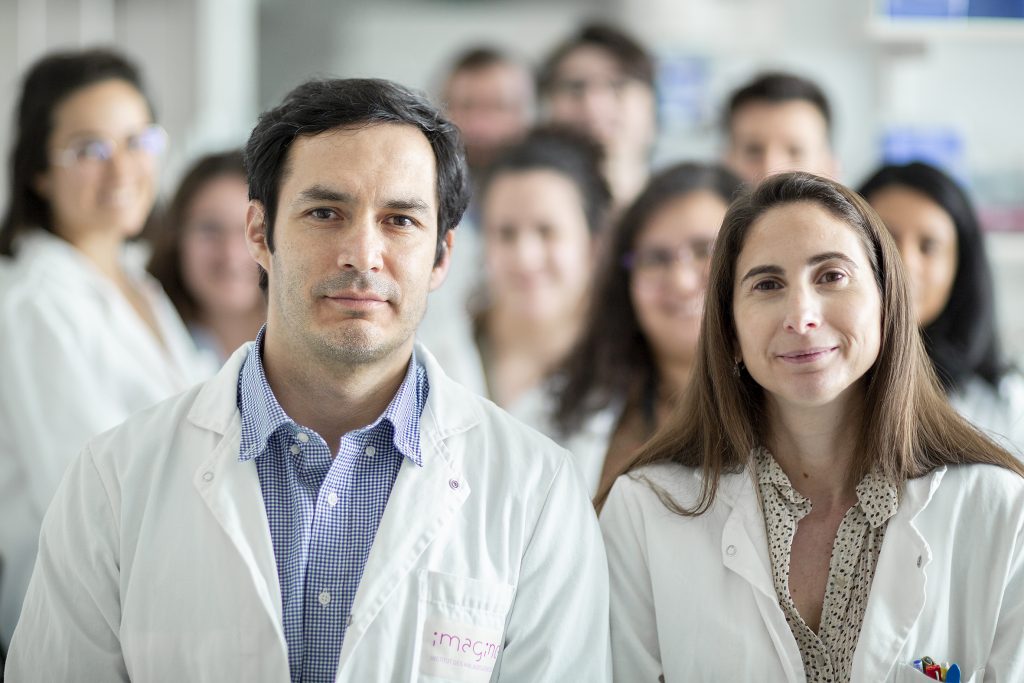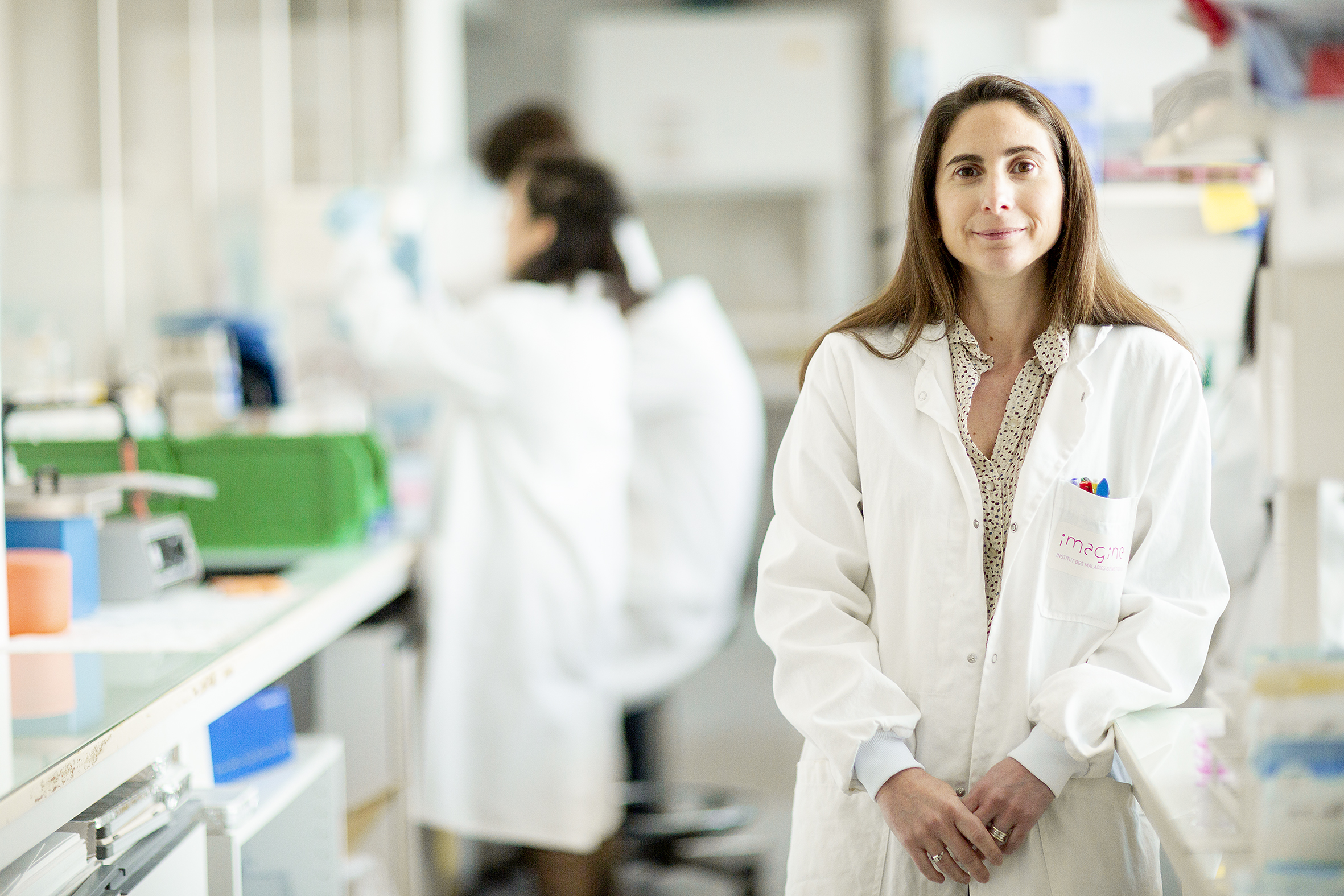Gaël Ménasché is a Researcher since 2019 and Director of Imagine‘s laboratory “Molecular Bases of Immune Homeostasis Abnormalities”. She explains her background and why Institut Imagine was the best choice to carry out her research.
What led you to join Institut Imagine?

I obtained my PhD in 2004 under the supervision of Dr Geneviève de Saint-Basile, Inserm Research Prize 2011. I then did my postdoctoral training in Gary Koretzky’s laboratory at the Abramson Family Cancer Research Institute at the University of Pennsylvania in the USA. In 2007, I decided to come back to France. I joined INSERM and became part of the Institut Imagine.
Which diseases does your laboratory focus on?

With Fernando Sepulveda (CNRS Researcher of Chilean origin), I co-direct the “Molecular bases of immune homeostasis anomalies” laboratory at Institut Imagine. Our team is studying the different mechanisms that allow the immune response to return to a state of equilibrium after being stimulated. Severe alterations in “immune homeostasis” are the source of many immune pathologies. Our team is composed of 12 people: Researchers, young Post-doctoral Researchers, Engineers, Students and French and international Clinicians.
Our research work is at the interface of immunology, cell biology and genetics. Our objective is to determine the pathophysiological mechanisms that are at the origin of severe alterations of immune homeostasis based on the study of immune pathologies caused by a genetic defect. This approach offers unique opportunities to describe key physiological processes, to understand complex mechanisms and to develop new diagnostic and therapeutic tools with the ultimate goal of providing patients with a solution to relieve and cure them.
It is in this context that we have developed a research project on the identification of new molecular determinants controlling allergy responses. Allergic reactions are the consequences of an inappropriate immune response against harmless antigens called allergens.
Today, in France, 1 in 3 people are affected by allergies. By 2050, the most alarming forecasts are that 1 in 2 people will be affected.
These attacks can be benign, but sometimes much more disabling and severe (asthma, strict diet, or angioedema that can lead to death).
What does Institut Imagine bring to you?
Our research on so-called “rare” genetic immune diseases is now being used to understand allergic diseases and to find possible therapeutic approaches.

“Searching for each child, finding for all” is what we do every day at Imagine because research on genetic diseases benefits all medical knowledge on the human body and its pathologies.
I have also worked extensively on the Griscelli syndrome, which owes its name to the founder of Institut Imagine. This genetic disease is characterized by a partial albinism and a silver-gray coloring of the hair, which may be associated with a neurological disorder or an immune pathology characterized by the occurrence of a hemophagocytic syndrome*.
All this research is made possible by Institut Imagine. We are at the heart of a unique environment, in direct contact with patients, their families and doctors, but also with all the other researchers at the Institute who work on all genetic diseases. This multidisciplinary ecosystem is extremely rich and dynamic, and brings a lot to our thinking, our research and our discoveries.
It is therefore a pride and a privilege to be part of the large Imagine family.
*A rare and severe disorder caused by an exaggerated proliferation of T cells and macrophages associated with a very high secretion of pro-inflammatory cytokines known as a cytokine storm, which can be life threatening.

